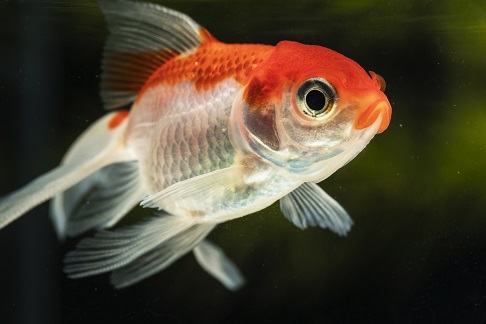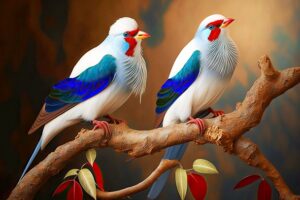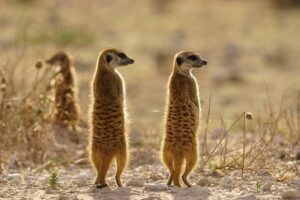Table of Contents
ToggleIntroduction
North Carolina is home to a diverse avian population, and blackbirds hold a special place in this remarkable tapestry of nature. These ebony-hued birds not only add elegance to the state’s landscapes but also bring with them unique characteristics that make them a fascinating subject of study and observation. In this article, we’ll explore the enchanting world of blackbirds in North Carolina.
The Common Crow: A Familiar Sight
The American Crow (Corvus brachyrhynchos) is a common sight throughout North Carolina. Its glossy black plumage and distinct “caw” call make it easily recognizable. These intelligent birds are known for their remarkable problem-solving abilities and adaptability to various environments.
The Mystique of the American Raven
Often confused with the crow, the American Raven (Corvus corax) is more prominent and boasts a deep, resonant call. These birds have a mysterious allure and are often associated with folklore and mythology, known for their intelligence and keen hunting skills.
The Graceful Black Skimmer
On the coast of North Carolina, one can spot the Black Skimmer (Rynchops niger), a unique black bird with an extraordinary bill. These birds gracefully skim the water’s surface while foraging for food. Their striking black-and-white appearance adds a touch of elegance to the shores.
The Red-Winged Blackbird’s Vibrant Presence
The Red-Winged Blackbird (Agelaius phoeniceus) stands out with its glossy black plumage and bright red and yellow shoulder patches. These territorial birds are often seen in wetlands across the state and are known for their distinctive “konk-la-ree” song.
The Elusive Swallow-Tailed Kite
The Swallow-Tailed Kite (Elanoides forficatus) is a majestic raptor known for its striking black and white plumage and distinctive forked tail. While they are elusive, lucky observers may witness their breathtaking aerial acrobatics during their migration through the state.
The Melodious Black-Capped Chickadee
In the woodlands of North Carolina, you can hear the cheerful song of the Black-Capped Chickadee (Poecile atricapillus). These tiny black and white birds are known for their friendly demeanor and distinct “chick-a-dee-dee-dee” call.
The Migratory Black-Throated Blue Warbler
The Black-Throated Blue Warbler (Setophaga caerulescens) is a migratory songbird that graces North Carolina during its breeding season. Its striking black and blue plumage and melodic song make it a favorite among birdwatchers.
The Stealthy Black-Crowned Night Heron
The Black-Crowned Night Heron (Nycticorax nycticorax) is a nocturnal bird found in North Carolina’s wetlands. With its jet-black plumage and piercing red eyes, this bird is a master of stealth, patiently waiting for prey at night.
The Quirky Common Grackle
The Common Grackle (Quiscalus quiscula) is known for its iridescent plumage and peculiar vocalizations. These birds can be seen in urban areas and are known for their adaptability and resourcefulness.
The Majestic Bald Eagle
While not entirely black, the Bald Eagle (Haliaeetus leucocephalus) deserves mention for its impressive presence in North Carolina. These magnificent birds of prey, with their striking white head and tail feathers, symbolize strength and freedom.
The Unique Black Vulture
Black Vultures (Coragyps atratus) are known for their distinctive black plumage and bald heads. They play a crucial role in the ecosystem by scavenging carrion helping keep the environment clean.
The Nocturnal Barred Owl
The Barred Owl (Strix varia) is a charismatic nocturnal bird in North Carolina’s forests. Known for its “who-cooks-for-you” call, these owls have striking black and white plumage, making them a sought-after sighting for bird enthusiasts.
The Spectacular Black Scoter
During the winter, North Carolina’s coast becomes a temporary home to the Black Scotter (Melanitta americana). These sea ducks, with their entirely black plumage, provide a unique spectacle for birdwatchers.
Conclusion
North Carolina’s avian diversity includes various blackbirds, each with unique traits and characteristics. From the intelligent Common Crow to the enigmatic Raven, the vibrant Red-Winged Blackbird, and the majestic Bald Eagle, these birds enrich the state’s natural beauty. Whether you’re an avid birder or appreciate the beauty of nature, exploring North Carolina’s blackbirds is an enriching experience.
FAQs
- Where is the best place to spot black birds in North Carolina?
The best places to spot black birds in North Carolina include wetlands, woodlands, and coastal areas, where various species can be found.
- Are blackbirds in North Carolina migratory?
Some black birds in North Carolina, like the Black-Throated Blue Warbler and Black Scoter, are migratory, while others, like the American Crow and Red-Winged Blackbird, are year-round residents.
- What is the significance of blackbirds in North Carolina’s ecosystem?
Blackbirds play essential roles in North Carolina’s ecosystem, including scavenging carrion, contributing to seed dispersal, and controlling insect populations.
- Are there any conservation efforts in place for these black birds?
Conservation efforts are in place for several blackbird species in North Carolina, particularly those endangered or threatened.
- Can I attract blackbirds to my backyard?
Yes, you can attract blackbirds to your backyard by providing suitable food and habitat, such as bird feeders, birdbaths, and native plants.





